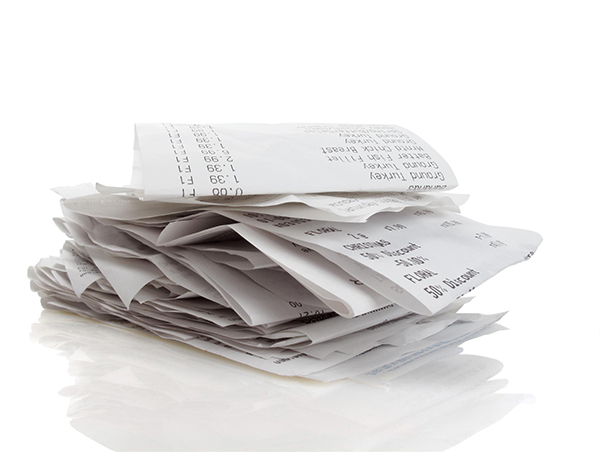Ridhi Shah
Ridhi is an Australian MPA who has done her Diploma in Financial Planning and excels in various financial and accounting services.
Do you consider your bookkeeper to be a business asset? If you’re like most businesses you probably just see bookkeeping as another business expense. When you compare good bookkeeping to the bad and the ugly, you will develop a greater appreciation for the asset that a quality bookkeeper really is.
THE UGLY
Let’s consider “ugly” bookkeeping first. Ugly bookkeeping is basically what happens when there really is no bookkeeping. Perhaps in an effort to save on bookkeeping fees, faded receipts are just tossed into a shoebox and passed over to the accountant sometime after the end of the year.
This potentially creates several problems for your business.
Firstly, this simply pushes off the bookkeeping work to the accountant. A decent bookkeeper may cost you anywhere from $40 to $80 an hour. A junior accountant processing the bookkeeping work may be costing you over $100 an hour.
Secondly, you are missing out on the advantage of having up to date accounts. This means you have no way of basing financial business decisions on real-time, accurate data. If you miss identifying issues as they arise they can become ingrained problems. When you make uninformed financial decisions you risk overextending yourself or overlooking key provisions that you should be factoring in.
You are more likely to miss out on eligible deductions because you no longer have the necessary information to prove or justify your claims. There is also the risk of missing compliance deadlines or requirements, which can result in fines and penalties.
Finally, you can end up missing out on using the expertise of your accountant for services beyond historical data collation and meeting tax obligations.
Ugly bookkeeping is an expense that your business simply can’t afford.

THE BAD
Bad bookkeeping is when bookkeeping is done, you guessed it, badly.
This may be the case when a busy business owner does their own bookkeeping to save themselves some ongoing costs, or when a bookkeeper has no real training and/or experience to properly understand what they are doing.
Bad bookkeeping creates the same potential problems highlighted as ugly bookkeeping. In fact, it can even create more problems, since the accountant now has to spend hours unraveling the bookkeeper’s work, and you may have made decisions based on faulty financial reports.
Bad bookkeeping is an expense that creates headaches for your business.

THE GOOD
Now relax, take a breath, and consider that when your business has a good bookkeeper, it is an advantage for your business.
- Bookkeeping rates are lower than accounting rates. The less work the accountant has to do just getting your books to balance and make sense, the better.
- Good bookkeeping records equip you with up to date information to make properly informed business decisions when and as you need to. This also makes it easier to get added value professional accounting services on an interim basis, rather than having to wait until everything is sorted after the end of the financial year.
- Compliance becomes simple. You don’t need to stress about potential audits, late lodgement penalties, dubious expense claims, or inadequate support for legitimate claims.
- When your accounting budget can be spent on quality services such as tax advice, business analysis, and budgeting, rather than solely on sorting out historical data and compliance, you can get much better value from your accountant.
A good bookkeeper is truly a valuable asset to your business.

What does a good bookkeeper look like?
Whether hiring, contracting or outsourcing bookkeeping, a good bookkeeper is a well-trained expert at keeping track of your financial information. They don’t need to have an in-depth knowledge of accounting, but they should know what the accounting firm needs.
- It’s not just about filling in a box. They ask questions about your business to ensure they can maintain records in a way that is meaningful and relevant for you.
- They’re not stuck thinking they have to know it all. This means they’re not afraid of needing help and are able to recognise when they need to ask for the additional expertise of an accountant. They are able to dialogue with your accountant in a meaningful way, taking required advise and succinctly imparting necessary information.
- Their software skills are kept up to date and they are concerned with keeping up to date with their training.
- They are detail oriented, consistent and careful.
- The importance of keeping clear records is understood, and they are organised enough to maintain them.
- They communicate with you. When there is a problem they’re not afraid to discuss it with you.
- If they’re doing specific functions such as payroll, accounts payable, accounts receivables functions, then they are well trained in these functions and capable of maintaining positive relationships with the people these roles require them to interact with.
- Confidentiality is important to them. They understand the value of the security, so they won’t bypass safety protocols or talk about your business matters outside of their purview.
A good bookkeeper is one of the most useful assets that your business can have since their work provides the foundation from which all your accounting workflows. Accounting is the backbone for effective compliance work, financial reporting, budgeting, business analysis, tax planning, and financial strategies. It also provides key knowledge for effective marketing, management, and other essential business decisions.
